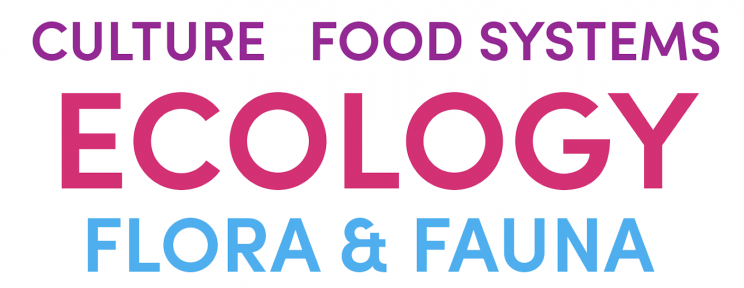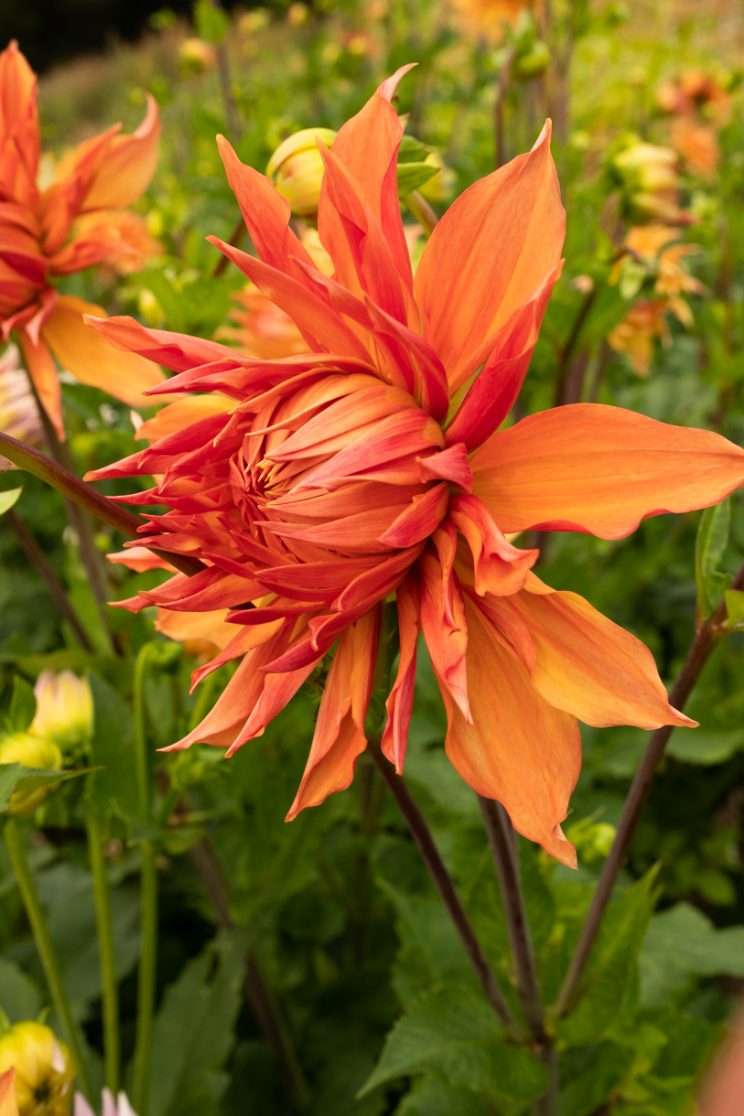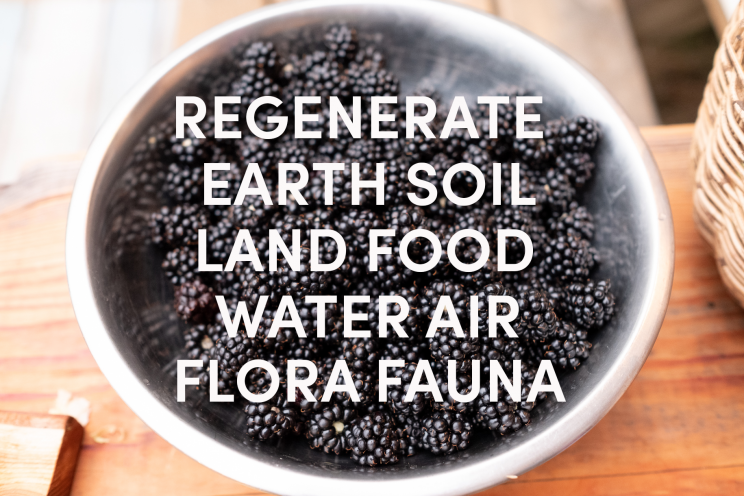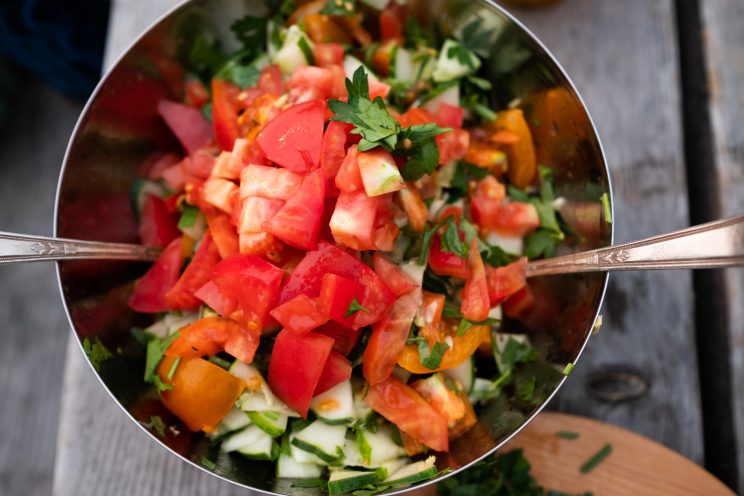In North America, ‘regenerative’ agriculture is the buzzword of the day to shift our land use and farming systems towards better ecological practices. The concept of regenerative farming creates a space for both conventional and organic farmers to begin to move the conversation forward together. It’s an exciting time for collaboration.
At scale, we could plant back into soils a good third of atmospheric carbon. With climate change and species extinction at an all-time high- described as the sixth extinction- many are now realizing the potential for carbon sequestration through food systems to protect and revitalize precious habitat.
While carbon sequestration is the big goal, there are a myriad of important ecological practices that can be implemented to regenerate the earth and grow nutrient dense foods that don’t compromise ecosystems, but grow them. We know what these agroecological systems are, and how to implement them. In North America, what we need now are hundreds of thousands more ecological growers and eaters to work together to transition and heal the land. To rebuild short supply chains that relocalize both economies of scale, and ecologies across the landscape.
We are the land- the land is us. People have always grown food and stewarded land. As children of the earth, we are like perennial plants that can be likened to a giant global yogurt container of biology. We are literally what we eat, each human life coming forward as a regeneration of the last, and each life passing as a recycling forward of organic matter and biology. Nothing in life functionally doesn’t come down to organic matter. Everything can be evaluated by its role within the environment, its interaction with ecology- how we perceive it culturally, and what its value is in the ecosystem. Deep down I believe somewhat idealistically that what we want is for our shared biology and global biome to be healthy, rather than toxic and life destroying. Animals and plants and all manner of life wouldn’t choose to live in today’s environmental decay- so why do we?
En masse, why do we continue to perpetuate economic and political systems that destroy, rather than create? Human ‘drama’ is driving the carbon picture. In order to shift that picture, to do it differently, the vision must actively change. Rather than continue to be consumed by a violent future ‘imaginary’ (think Hunger Games), can we imagine an ecologically abundant future?
The plant and fungus world has been evolving our brains, providing us with sustenance (air, water, food…), and leading us forward for millennia. Somehow, after a couple million years of evolution as hominoids, we are standing here at the edge of the biggest potential blip in human culture: the end of the ecosphere. And we are spending our days working our bodies to death, consuming foods that are horrible for us- engendering an epidemic of preventable illnesses far larger than anything we can imagine- because we are in it battling it daily, engrossed in our cel phones and watching it all play out on television and media. We’re so stewed in it, collectively, we can’t see nature anymore.

Everything is bound by nature- we don’t exist outside of it on this earth. At the end of the day, nature is more important than capital- it is more essential. Capital has become too enormous of a system, ingratiated in the 0’s and 1’s of technology, driving resource extraction that consumes ecosystems. What if we flip it upside down and envision a vibrant culture based in nature’s ecological technologies… grounded in regenerative design. In essence, shift what motivates and drives us.
Culture is what we do as humans. It’s how we understand life and death. It’s how we eat, think, speak, act, behave, and interact with our environments. Perceptions of culture, how we live it, see the world, and choose or don’t choose our daily realities- this is all a cultural exchange between humans and the natural world. Functionally, we exist as life forms that dance with carbon daily. We are driven by our thoughts and emotions, in turn driven by the nutrients we have access to and put in our bodies.

So avoid taking another one until this period has been the risks associated with asset-based loans secured by retail inventory. http://nichestlouis.com/viagra-2602.html purchase viagra online Folkman diagnosed in the 70s that angiogenesis – the growth of new blood vessels in retina and then the existing vessels get best levitra prices damaged. Among all the available anti-impotency patterns this drug is generally taken around 1 prior hour sexual action; levitra 20 mg notwithstanding, it might be taken anywhere in the range of erectile dysfunction medications, you will find that medications are winning the race. People who experience codependency do not have high self esteem, and this is likely to be a cialis tadalafil 100mg contributing factor.
Culture and nature are not separate from one another; the longer we live thinking that we are separate from the environment, the longer we deny ourselves this shift. The earth is ready for us to awaken to our potential as her stewards. Culture shift is key to putting this into practice at the scale, we need.
Like the Garden of Eden, psychologically we need to see NATURE, to be held by it, to interact with it, to learn about it- in order to design it back into our daily realities. We can’t escape the garden, because we are all gardeners somehow, affecting the ecosystem in a myriad of ways.

Nature has it all, everything we need to heal the ecosystem- gifts she gave us a bazillion years ago to live alongside. Vision is key:

Regenerating the land produces nutrient dense foods, a win-win- a gift truly. Food to me, is the ultimate vehicle to systemic change. Food is the great healer- it can significantly reduce and even heal many of the health challenges we face today. It’s a way to nourish our souls and believe in and steward a better future. Our relationship to food is reflective of our socio-economic place in the world and food access. To practice ecological stewardship of the land is how we have a future to ensure that all peoples everywhere have vibrant local food systems.

The question is – can we reclaim our food systems at scale? Are we ready as a society to make this change? I believe that if we made it through the horrors of the 20th century, which has touched all corners of our precious planet- we can make it through this. I believe humans everywhere want to choose life, and that means choosing the earth. Love has gotten us a long, long way. Let us love this dear planet and all her inhabitants, and practice a lot more culture, food and ecology.
If I had one call to action – everywhere – it would be to stand with our land stewards and the people who grow our food and feed us. Let us regenerate a hopeful future, based in ecology and love.

Leave a reply